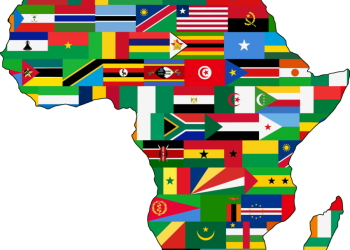The new tax reform bills by President Bola Tinubu has generated controversy in the country.
DAILY GIST reports the bills passed second ready at the upper chamber of the National Assembly on Thursday
The NEC led by the Vice president, Kashim Shettima had recommended that the current tax reform bills should be withdrawn for further consultations.
But President Tinubu has decided to proceed with the legislative process, suggesting that amendments and public input can still be achieved without withdrawing the bills.
By allowing the National Assembly to continue deliberating on the proposed reforms, Tinubu aims to strike a balance between inclusiveness and procedural progress.
The formation of a Presidential Committee on Tax and Fiscal Policy Reform in August 2023 was an ambitious move by Tinubu’s administration.
It aims to overhaul Nigeria’s tax system in a manner that would enhance productivity, streamline operations, and provide a more conducive business environment.
The NEC’s advice reflects a cautious approach, emphasizing the importance of widespread acceptance and comprehension of the proposed reforms.
The president’s response, however, demonstrates a commitment to moving forward with necessary tax changes while leaving room for continued discussion.
Below are things you should know about the controversial bills:
1. Increase in VAT
Section 146 of the bill seeks to raise the value added tax (VAT) from 7.5 per cent to 10 per cent by 2025, with further increases to 12.5 per cent from 2026 to 2029, and 15 per cent from 2030 onwards.
2. 27.5% company income tax
Section 56 of the bill outlines tax rates to be imposed on the total profits of companies, with small firms taxed at 0 per cent. All other companies will face a tax rate of 27.5 per cent in 2025, which will reduce to 25 per cent from 2026.
3. 4% development levy on companies
Section 59 stipulates a development levy on the assessable profits of companies, excluding small and non-resident companies. The levy is set to be four per cent for 2025 and 2026, three per cent from 2027 to 2029, and two per cent from 2030 onwards. The levy will fund the Student Education Loan Fund.
4. VAT exclusions
Also contained in the bill is the provision for certain supplies to be exempt from the proposed VAT.
These supplies include: oil and gas exports, crude petroleum oil, and feed gas. Other exempt items are: goods purchased for humanitarian projects (where the donor pays VAT upfront), baby products, locally manufactured sanitary products, military hardware and arms, and ammunition supplied to security agencies.
5. Reducing Tax Burden and Boosting Competitiveness
The Nigeria Tax Bill is one of the core pillars of the proposed reforms, targeting the elimination of multiple taxes that burden both businesses and individuals. In Nigeria, the issue of multiple taxation has long been a significant barrier to economic competitiveness, as companies face a complex web of overlapping tax requirements across various government tiers.
This bill proposes simplifying tax obligations, allowing businesses to operate more freely and with reduced administrative burdens, which could ultimately make Nigeria more attractive to investors.
6. Standardizing Tax Rules Across Jurisdictions
The Nigeria Tax Administration Bill (NTAB) introduces standardized tax rules to harmonize tax administration across federal, state, and local levels.
Taxation in Nigeria has often been fragmented, with differing regulations and procedures across various jurisdictions.
This inconsistency has resulted in confusion among taxpayers and has complicated the compliance process. NTAB seeks to address this by creating a single set of administrative rules that apply nationwide, simplifying tax compliance for businesses and individuals alike.
7. 5% excise tax on lottery and gaming income
Section 62 and Schedule 10 of the law propose 5 per cent excise duty on revenue of lottery and gaming trade or business.
It described ‘Gaming’ as gambling, wagering, video poker, roulette, craps, bingo, slot or gaming machine, drawings or other games of chance conducted by any person.
8. Rebranding FIRS for a National Focus
The Nigeria Revenue Service (Establishment) Bill aims to reestablish the Federal Inland Revenue Service (FIRS) as the Nigeria Revenue Service (NRS), signifying a shift from a federal focus to a nationwide mandate.
The NRS will be responsible for revenue collection across the federation, positioning it as the central authority for tax-related matters. This transition reflects an effort to unify tax collection practices and to make the agency’s role clearer and more comprehensive in scope.
Under this bill, the NRS will be tasked with overseeing the enforcement of tax laws, ensuring compliance, and streamlining revenue collection methods. The agency’s broadened mandate could lead to a more efficient revenue generation process, as it centralizes tax authority and reduces redundancy.
9. 5% telecoms tax
In the same vein, the bill had proposed a five per cent excise duty on telecommunications services, including postpaid and prepaid services regulated by the Nigerian Communications Commission (NCC).
10. Streamlining Tax Coordination for Efficiency
The primary goal of these proposed tax reform bills is to create a more cohesive and coordinated tax system that eliminates overlapping responsibilities among federal, state, and local tax authorities.
Nigeria’s current tax structure is plagued by inefficiencies, confusion, and a lack of coordination, which has led to issues in revenue collection and compliance.
By streamlining tax administration, the government aims to foster a more transparent and predictable environment for both taxpayers and tax authorities.
11. Integration of Multiple Taxes into a Unified Framework
One of the most ambitious aspects of the proposed reforms is the integration of multiple taxes, including Company Income Tax (CIT), Personal Income Tax (PIT), Capital Gains Tax (CGT), Value-Added Tax (VAT), and Petroleum Profits Tax (PPT), into a single, streamlined framework.
This consolidation is aimed at reducing the administrative burden associated with maintaining separate tax laws and enhancing efficiency within the tax system.
With this integration, the government hopes to make tax compliance simpler and more accessible for individuals and businesses alike.
12. Strengthening Nigeria’s Global Competitiveness
A critical motivation behind the tax reform bills is the desire to make Nigeria more competitive on the global stage. The current tax system, plagued by inefficiencies and a lack of transparency, often discourages foreign investors from choosing Nigeria as a business destination.
By simplifying tax processes and aligning them with international best practices, these reforms aim to position Nigeria as a more attractive location for global business and investment.
13. President Tinubu’s Vision for a Modernised Tax System
The tax reform bills represent a central component of President Tinubu’s economic vision, which emphasizes productivity, efficiency, and inclusiveness.
The creation of the Presidential Committee on Tax and Fiscal Policy Reform in 2023 laid the groundwork for these legislative proposals, reflecting Tinubu’s commitment to building a modern tax system that supports Nigeria’s development agenda.
14. The Future of Nigeria’s Tax System
As Nigeria’s tax reform bills continue to move through the legislative process, the country faces an opportunity to transform its economic landscape.
The success of these reforms will depend not only on the clarity and effectiveness of the proposed bills but also on the continued engagement of all stakeholders. While challenges remain, the reforms’ comprehensive approach and emphasis on inclusivity provide a solid foundation for positive change.
15. How does It affect Nigerians?
These reforms will have a significant impact on both businesses and individual taxpayers in Nigeria.
For Businesses: The streamlined tax system will simplify compliance for businesses, particularly small and medium-sized enterprises (SMEs). By reducing the time spent on complex tax procedures, companies can concentrate more on growth and innovation.
For Individuals: Technology will streamline tax filing and payment processes, providing individuals with clearer guidelines on their tax obligations. This clarity will reduce the chances of disputes with tax authorities.
Additionally, the creation of a Tax Appeal Tribunal offers a fair platform for resolving any disagreements that may arise.









